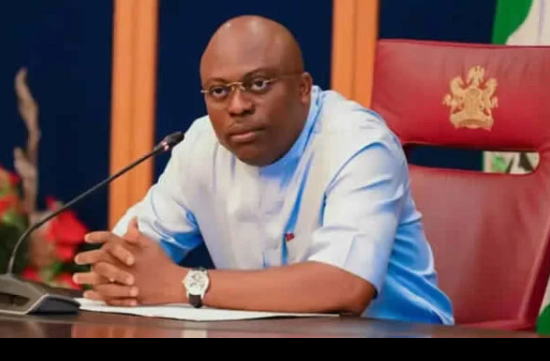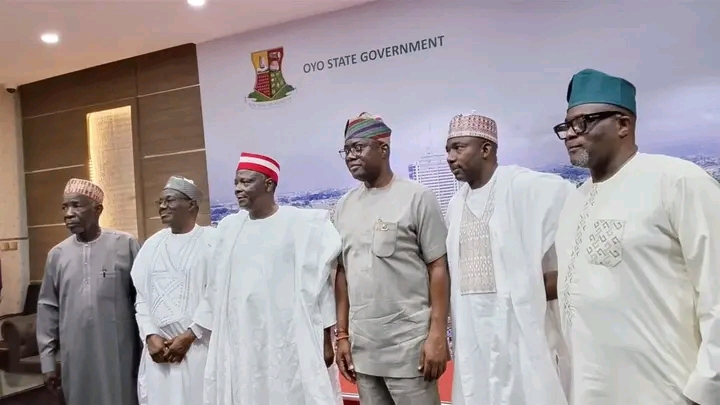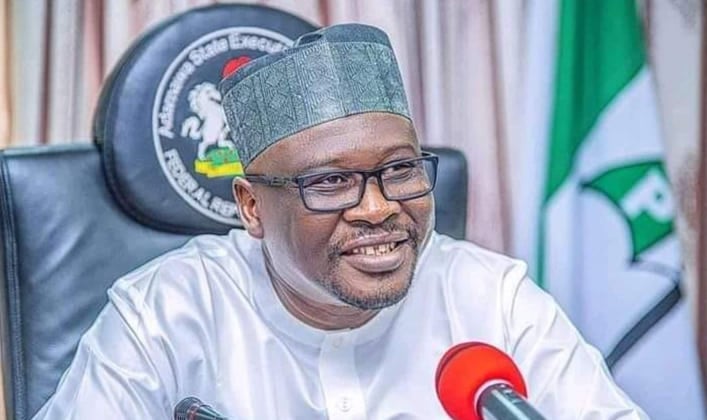Former President Olusegun Obasanjo has warned that Nigeria is currently experiencing state capturing, which he described as a pervasive form of corruption where powerful individuals and groups manipulate the country’s policies and resources to serve their private interests.
Speaking via a recorded video address at the Chinua Achebe Leadership Forum at Yale University, New Haven, Connecticut, United States, Obasanjo explained the detrimental effects of state capture on the nation’s economic development, governance, and public services.
In his keynote address, titled, “Leadership Failure and State Capture in Nigeria,” the former President lamented, “As the world can see and understand, Nigeria’s situation is bad.”
He, however, said that though things might not be looking so cheerful and bright for Nigeria, socio-economically, that does not foreclose hope of better days and a prosperous nation.
The former President, according to a statement from his Special Assistant on Media, Kehinde Akinyemi, had the 25-minute video recorded for the forum while in the Democratic Republic of Congo.
He described state capture as a situation where political elites, often through family ties and business connections, exploit the country’s resources and influence its legal and economic systems for personal gain.
Obasanjo pointed to the acquisition of national assets at bargained prices and the allocation of resources to select groups as clear examples of this phenomenon.
The former President, therefore, called for stringent measures, both locally and internationally, to prevent and eliminate such practices.
“State capture is not always overt and obvious,” Obasanjo said. “It can arise from the subtle alignment of business and political elites, creating a system where decisions no longer serve the public interest but benefit a specific group.
“What is happening in Nigeria – right before our eyes – is state capture: The purchase of national assets by political elites – and their family members – at bargain prices, the allocation of national resources – minerals, land, and even human resources – to local, regional, and international actors.
It must be prohibited and prevented through local and international laws.
“Public institutions such as the legislature, the executive, the judiciary, and regulatory agencies both at the federal and local levels are subject to capture.
“As such, state capture can broadly be understood as the disproportionate and unregulated influence of interest groups or decision-making processes, where special interest groups manage to bend state laws, policies, and regulations.
“They do so through practices such as illicit contributions paid by private interests to political parties, and for election campaigns, vote-buying, buying of presidential decrees or court decisions, as well as through illegitimate lobbying and revolving door appointments.
“The main risk of state capture is that decisions no longer take into consideration the public interest, but instead favour a specific special interest group or individual,” he added.
Obasanjo further said state capture could affect economic development, regulatory quality, provision of public services, quality of education and health services, infrastructure decisions and even the environment and public health.
He lamented that in Nigeria, “Laws, policies, and regulations are designed to benefit a specific interest group, oftentimes to the detriment of smaller firms and groups and society in general.”
Obasanjo lamented the reign of corruption in the country, adding that it undermined the integrity of democratic institutions and perpetuated inequality.
The former president said, “That’s the situation mostly in Nigeria in the reign of Baba-go-slow and Emilokan.
“The failing state status of Nigeria is confirmed and glaringly indicated and manifested for every honest person to see through the consequences of the level of our pervasive corruption, mediocrity, immorality, misconduct, mismanagement, perversion, injustice, incompetence and all other forms of iniquity. But yes, there is hope.”
The former President also reflected on Chinua Achebe’s critical work, “The Trouble with Nigeria,” which identifies leadership failure as the root cause of Nigeria’s challenges.
Obasanjo echoed Achebe’s view, stating that the unwillingness of Nigeria’s leaders to rise to the challenge of true leadership has been the country’s undoing.
On Achebe’s personality, Obasanjo hinted that the great author and writer had been known through “his work, and his values for as long as our nation has been in existence. He was a great and distinguished Nigerian.”
Advertisement






